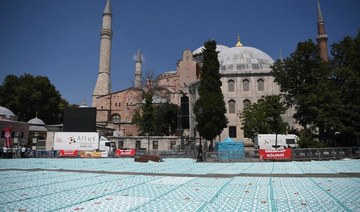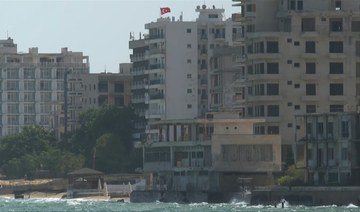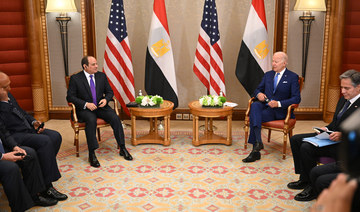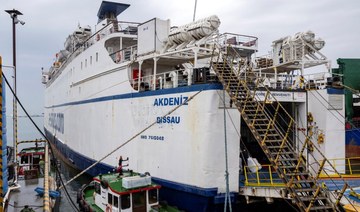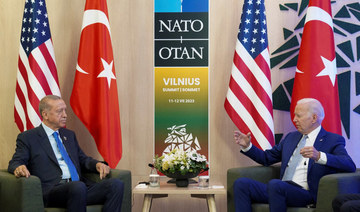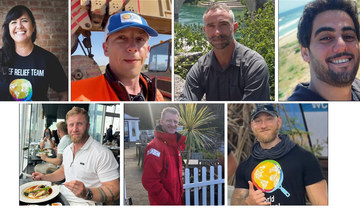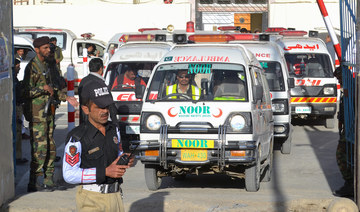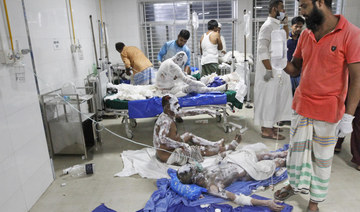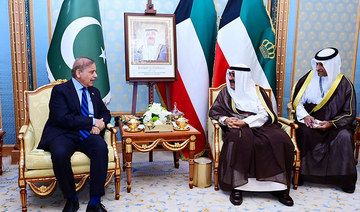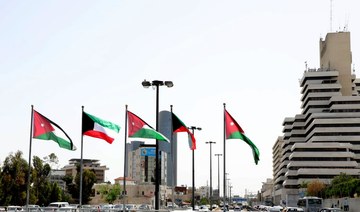ANKARA: The Turkish public wakes up every day to statements from leading political figures in Ankara promising a “new wave of reform” that is expected to arrive soon.
However, considering the country’s past record on the rule of law, democracy, human rights and management of the economy, there is a a big question mark over how these actors will deliver on their commitments.
Promises of reform have become a recurrent theme in President Recep Tayyip Erdogan and his government member’s speeches in recent days, especially after the sudden reshuffle of the country’s top economic team, which includes the resignation of Berat Albayrak, the finance minister and also Erdogan’s son-in-law.
Erdogan has chosen a conciliatory tone in his speeches directed at the financial market, speeches reminiscent of those he made in 2014 about reform of the Turkish economy.
On Nov. 11, Erdogan pledged the launch of market-friendly policies, and to contain inflation and put the country back on a path to growth.
The Turkish lira has lost about a third of its value this year and almost half of its value against the US dollar since May 2018 — making it among the worst performers in emerging markets — although it bounced back following the redesign of the country’s economic management team and the appointment of a new central bank governor and finance minister.
The newly appointed figures both committed to prioritizing price stability in a bid to please global markets, although a decision to raise interest rates to a significant level is expected to be announced on Nov. 19.
Berk Esen, a political scientist from Sabanci University in Istanbul, said that Albayrak’s resignation is a blow to Erdogan, whose regime has fallen on hard times due to the economic downturn and growing popular opposition against his government.
Esen does not attribute too much significance to Erdogan’s and his A team’s recent statements about the start of a new era of reforms in the economy and judiciary.
“Under the ruling Justice and Development Party’s (AKP) rule, Turkey has experienced several waves of ‘reform’ that led to centralization of power in the hands of the ruling party and its leader,” he told Arab News.
Justice is another area where the government suffers from internal bleeding from disenchanted party members and constituencies.
Along with declining foreign reserves, a weakening currency and growing isolation due to engagement in several battle scenes in its region, Turkey’s credentials in the justice field are on a downward trend and making investors concerned about the country.
However, Justice Minister Abdulhamit Gul promised speedy trials and less pre-trial prison time in another speech on Nov. 12 in which he criticized lower courts going against decisions of the country’s constitutional court as harmful to investor trust.
“The judiciary should only consider the conscious, law and constitution. Let justice be served, if it means the coming of doomsday,” he said.
In the meantime, the Turkish Council of Judges and Prosecutors HSK will re-evaluate the high-profile case of Turkish philanthropist and businessman Osman Kavala, who has been behind bars since Nov. 1, 2017, as part of a legal saga illustrating the deterioration of the rule of law in Turkey.
The new trial of Kavala, accused of “attempting to undermine the constitutional order,” is set to begin on Dec. 18.
Esen thinks that following Albayrak’s resignation, Erdogan needs to strengthen the ranks of his regime and project an image of stability and calm.
“There were major defections from his party over the past year so he needs to find a way to stop the hemorrhaging of party cadres and votes to the newly established splinter parties and restore confidence in the Turkish economy,” he said.
Erdogan’s AKP is facing a big fall in popularity according to the latest polls, which reveal that public support dropped below 30 percent for the first time, while his nationalistic partner’s vote share drops below the 10 percent election threshold. This decline is significant considering that the AKP secured 43 percent of the vote in the previous parliamentary elections in 2018.
Ali Babacan, former economy tzar and the founder of a breakaway party DEVA, recently launched his campaign, “Don’t be Afraid, Turkey,” urging people to speak their minds and express themselves freely.
According to Esen, Joe Biden’s election as US president will bring the issue of sanctions back to the table over Turkey’s purchase of Russian air defenses when he takes office in January 2021.
“In response, Erdogan is probably seeking a restorationist course in foreign policy and the economy to stabilize his government. If these moves damage his agreement with his coalition partner and leader of the nationalistic MHP, Devlet Bahceli, the option of early elections may arise,” he said.
Burak Bilgehan Ozpek, an Ankara-based political scientist, said that the latest reform promises from high-ranking governmental officials showed that the AKP had noticed its declining political power since local elections last year ,where it lost the mayorship of several key cities to the opposition.
“So far, Albayrak and his team were encouraging a policy of criminalization of all dissident actors and they were implementing a political tutelage solely based on national security paradigms. However, this choice further polarized the country and fueled a one-man rule,” he told Arab News.
According to Ozpek, the ruling government’s only option to protect its voter base is by initiating reforms, ending judicial scandals, transforming its monopoly on the media and opening up space for people to freely express themselves.
“However, if Erdogan doesn’t give any concession from his own power, these reforms cannot materialize, and all these promises would remain on paper, leading to a freefall in their electoral base,” he said.
Will Turkish government deliver on its latest political promises?
https://arab.news/9wnta
Will Turkish government deliver on its latest political promises?
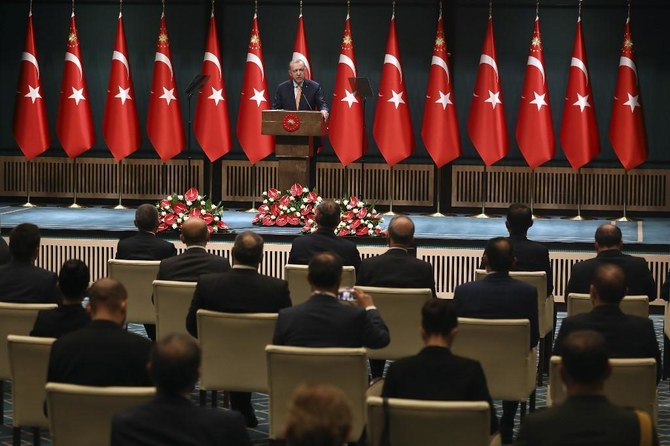
- Promises of reform have become a recurrent theme in Erdogan and his government member’s speeches recently
- The Turkish lira has lost about a third of its value this year and almost half of its value against the US dollar since May 2018
Why Israel is so determined to launch an offensive in Rafah. And why so many oppose it
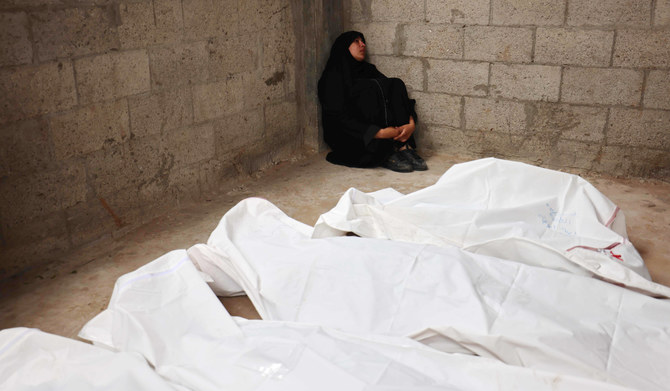
- Israel has killed more than 34,000 Palestinians, according to Gaza’s Health Ministry
- Palestinians live in densely packed tent camps, overflowing UN shelters or crowded apartments, and are dependent on international aid for food, with sanitation systems and medical facilities infrastructure crippled
JERUSALEM: Israel is determined to launch a ground offensive against Hamas in Rafah, Gaza’s southernmost town, a plan that has raised global alarm because of the potential for harm to more than a million Palestinian civilians sheltering there.
Even as the US, Egypt and Qatar pushed for a ceasefire deal they hope would avert an assault on Rafah, Prime Minister Benjamin Netanyahu repeated on Tuesday that the military would move on the town “with or without a deal” to achieve its goal of destroying the Hamas militant group.
“We will enter Rafah because we have no other choice. We will destroy the Hamas battalions there, we will complete all the objectives of the war, including the return of all our hostages,” he said.
Israel has approved military plans for its offensive and has moved troops and tanks to southern Israel in apparent preparation — though it’s still unknown when or if it will happen.
About 1.4 million Palestinians — more than half of Gaza’s population — are jammed into the town and its surroundings. Most of them fled their homes elsewhere in the territory to escape Israel’s onslaught and now face another wrenching move, or the danger of facing the brunt of a new assault. They live in densely packed tent camps, overflowing UN shelters or crowded apartments, and are dependent on international aid for food, with sanitation systems and medical facilities infrastructure crippled.
WHY RAFAH IS SO CRITICAL
Since Israel declared war in response to Hamas’ deadly cross-border attack on Oct. 7, Netanyahu has said a central goal is to destroy its military capabilities.
Israel says Rafah is Hamas’ last major stronghold in the Gaza Strip, after operations elsewhere dismantled 18 out of the militant group’s 24 battalions, according to the military. But even in northern Gaza, the first target of the offensive, Hamas has regrouped in some areas and continued to launch attacks.
Israel says Hamas has four battalions in Rafah and that it must send in ground forces to topple them. Some senior militants could also be hiding in the city.
WHY THERE IS SO MUCH OPPOSITION TO ISRAEL’S PLAN
The US has urged Israel not to carry out the operation without a “credible” plan to evacuate civilians. Egypt, a strategic partner of Israel, has said that an Israeli military seizure of the Gaza-Egypt border — which is supposed to be demilitarized — or any move to push Palestinians into Egypt would threaten its four-decade-old peace agreement with Israel.
Israel’s previous ground assaults, backed by devastating bombardment since October, leveled huge parts of northern Gaza and the southern city of Khan Younis and caused widespread civilian deaths, even after evacuation orders were given for those areas.
Israel’s military says it plans to direct the civilians in Rafah to “humanitarian islands” in central Gaza before the planned offensive. It says it has ordered thousands of tents to shelter people. But it hasn’t given details on its plan. It’s unclear if it’s logistically possible to move such a large population all at once without widespread suffering among a population already exhausted by multiple moves and months of bombardment.
Moreover, UN officials say an attack on Rafah will collapse the aid operation that is keeping the population across the Gaza Strip alive,. and potentially push Palestinians into greater starvation and mass death.
Some entry points have been opened in the north, and the US has promised that a port to bring in supplies by sea will be ready in weeks. But the majority of food, medicine and other material enters Gaza from Egypt through Rafah or the nearby Kerem Shalom crossing — traffic that is likely to be impossible during an invasion.
The US has said that Israel should use pinpoint operations against Hamas inside Rafah without a major ground assault.
After Netanyahu’s latest comments, US National Security spokesperson John Kirby said, “We don’t want to see a major ground operation in Rafah. Certainly, we don’t want to see operations that haven’t factored in the safety, security of” those taking refuge in the town.
POLITICAL CALCULATIONS
The question of attacking Rafah has heavy political repercussions for Netanyahu. His government could be threatened with collapse if he doesn’t go through with it. Some of his ultranationalist and conservative religious governing partners could pull out of the coalition, if he signs onto a ceasefire deal that prevents an assault.
Critics of Netanyahu say that he’s more concerned with keeping his government intact and staying in power than national interest, an accusation he denies.
One of his coalition members, Finance Minister Bezalel Smotrich, said Tuesday that accepting a ceasefire deal and not carrying out a Rafah operation would amount to Israel “raising a white flag” and giving victory to Hamas.
On the other hand, Netanyahu risks increasing Israel’s international isolation — and alienating its top ally, the United States — if it does attack Rafah. His vocal refusals to be swayed by world pressure and his promises to launch the operation could be aimed at placating his political allies even as he considers a deal.
Or he could bet that international anger will remain largely rhetorical if he goes ahead with the attack. The Biden administration has used progressively tougher language to express concerns over Netanyahu’s conduct of the war, but it has also continued to provide weapons to Israel’s military and diplomatic support.
Turkiye bans May Day protest in Istanbul’s main square
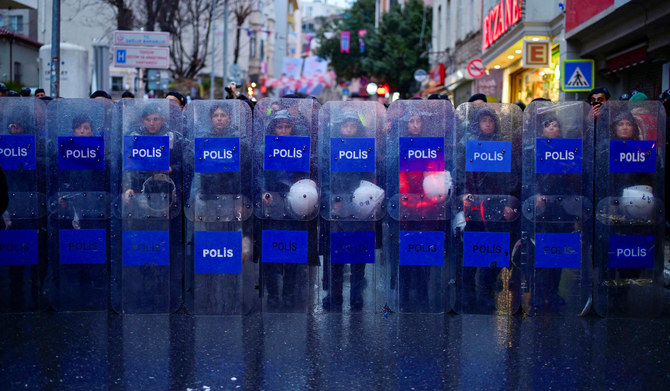
- Authorities later opened up the square for celebrations in 2010, but it was shut down again after it played host to anti-government protests in 2013 targeting Erdogan
ISTANBUL: Turkish police on Tuesday sealed off Istanbul’s central Taksim Square to prevent any May Day protests as President Recep Tayyip Erdogan warned unions to stay away from any provocative steps.
High metal barriers were erected around the square, AFP journalists reported.
The stepped-up security measures came a day after Interior Minister Ali Yerlikaya said authorities had designated 40 areas for May Day celebrations with the exception of the emblematic Taksim Square.
Yerlikaya said some unions had demanded to use the square, the epicenter of 2013 protests against the government of then prime minister Recep Tayyip Erdogan, now president, but that it would not be allowed.
“Taksim Square and its surrounding vicinity is not convenient for any rally,” he said.
Istanbul’s governor’s office has announced some roads will be closed to traffic while restrictions will be imposed on public transport as part of security measures.
Turkiye’s main opposition CHP party, which won a victory in the March 31 local elections while retaining control of several main cities including Istanbul, however pressed the government to open the square for labor rallies.
CHP leader Ozgur Ozel on Monday called on the interior minister to reconsider the ban on Taksim, which has been used in the past.
“Sealing off Taksim amounts to not recognizing the constitution,” he said.
In an address on Tuesday, Erdogan said insisting on staging a rally at unauthorized areas was “not well-intentioned.”
He said the opposition and some “marginal groups” sought to overshadow May Day spirit with their calls to rally at Taksim Square.
“I invite our unions and political parties to stay away from steps that would harm the May Day atmosphere,” he said.
Taksim Square was a rallying ground for May Day celebrations until 1977, when at least 34 people were killed during demonstrations.
Authorities later opened up the square for celebrations in 2010, but it was shut down again after it played host to anti-government protests in 2013 targeting Erdogan.
In 2023, Turkiye’s top constitutional court ruled that Taksim Square’s closure to protests constituted a violation of rights.
The Amnesty International rights group also said the ban “is based on entirely spurious security and public order grounds” and called for it to be lifted.
Calling the square “a place of huge symbolic significance,” Amnesty added that: “For more than a decade, the Turkish authorities have unlawfully restricted people’s right to assembly and criminalized peaceful protests that take place in the square.”
More than 42,000 police will be on duty in the city for May 1.
UN Palestinian agency chief seeks probe into treatment of Gaza staff by Israel
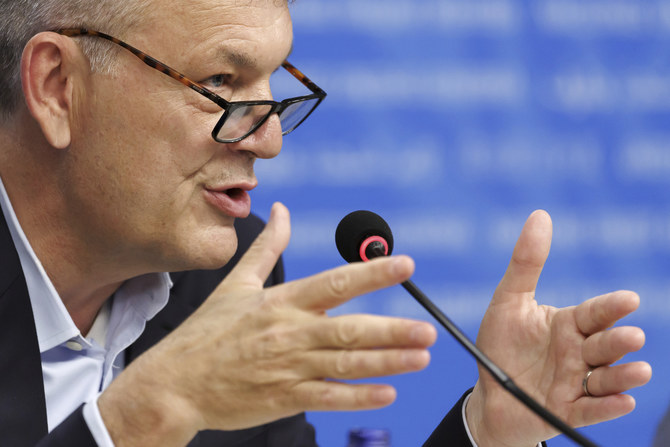
- Lazzarini said Israel blocked him from entering Gaza last month, and that he plans to visit again on Sunday. He voiced hope that Israel would let him in
- Israel has killed more than 34,000 Palestinians in Gaza, mostly women and children, according to the health ministry in the Hamas-run territory
GENEVA: The head of the UN agency for Palestinian refugees, UNRWA, called on Tuesday for countries to back an independent investigation into alleged killings and detentions of its staff and damage to its premises once the Israel-Hamas conflict ends.
UNRWA has accused Israel of targeting its facilities during more than seven months of conflict in the Gaza Strip, and said 182 of its staff there had been killed and more than 160 of its shelters hit, resulting in the deaths of hundreds of people fleeing Israeli bombardment.
After briefing UN member states in Geneva, UNRWA Commissioner-General Philippe Lazzarini told reporters he wanted the countries to back an independent investigation “to look into this blatant disregard of the United Nations in order to avoid that this becomes also in the future the new standard.”
Israel’s diplomatic mission in Geneva reacted by accusing UNRWA of complicity with Hamas, saying the militant group was embedded within the UN agency’s infrastructure.
Lazzarini said Israel blocked him from entering Gaza last month, and that he plans to visit again on Sunday. He voiced hope that Israel would let him in. UNRWA is the biggest humanitarian aid provider in Gaza where its 13,000 staff there also run schools and social services for the refugees who make up the majority of Gazans.
Israel accuses 19 of its staff members of taking part in the Oct. 7 Hamas attacks against Israel that killed 1,200 people and triggered Israel’s military offensive.
Israeli Prime Minister Benjamin Netanyahu has called for UNRWA to be shut down, saying it seeks to preserve the issue of Palestinian refugees. A review of the agency’s neutrality said Israel had yet to provide evidence for its accusations that a significant number of UNRWA staff were members of terrorist groups and Lazzarini said that all but a handful of countries had now unblocked funds they had paused after the Israeli allegations.
He listed those still withholding funds as the US, Britain, Austria and his native Switzerland.
The Swiss lower house’s foreign affairs committee on Tuesday narrowly voted to partly unblock financial aid to UNRWA solely for humanitarian ends, a step that needs further parliamentary approval.
Some $267 million in total remains blocked, Lazzarini said, based on a tally of countries’ prior commitments. The agency has raised $115 million in private funding, he added.
Another UN investigation into the allegations against UNRWA staff members is still under way.
Food and other humanitarian aid supplies to Gaza have improved in April, but there is still far from enough to reverse the trend toward famine, he said.
“We are engaged in a race against the clock to reverse the spreading of hunger and the looming famine especially in the northern part,” he said.
Gas blast kills eight at Beirut restaurant: minister
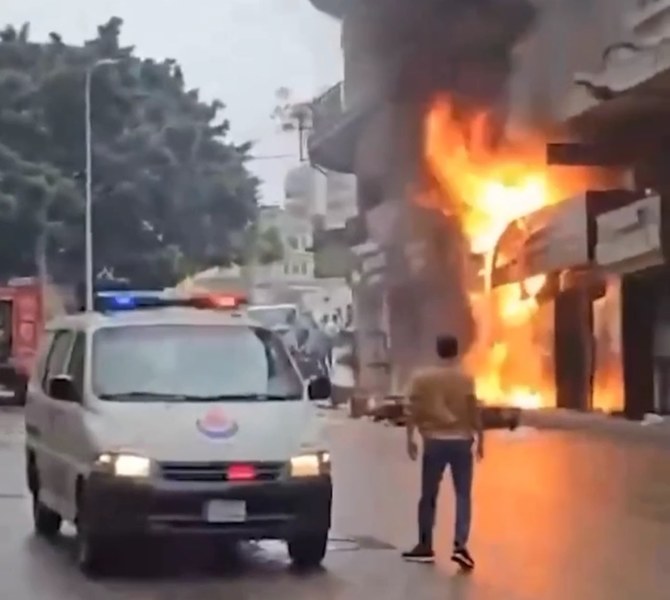
- The firefighters put out a blaze in a small restaurant in Beirut after “a gas leak caused an explosion at the restaurant”
BEIRUT: A fire caused by a gas canister explosion killed at least eight people at a restaurant in Beirut on Tuesday, a Lebanese government minister and firefighters said.
The state-run National News Agency quoted the Beirut Fire Brigade as saying that “eight victims died of suffocation inside the restaurant.”
The firefighters put out a blaze in a small restaurant in Beirut after “a gas leak caused an explosion at the restaurant,” NNA added, quoted the same source.
Interior Minister Bassam Mawlawi toured the site, also telling reporters at least eight people had been killed “by suffocation” in the blast.
Some lawmakers representing Beirut also visited, with parliament member Ibrahim Mneimneh questioning safety standards at the restaurant.
The accident “shows this place was not in line with public safety standards,” he said.
Lebanon’s economy has been in free-fall since late 2019, worsening a long-running public oversight problem in different sectors, especially with regard to public safety.
Kuwait launches anti-smoking campaign to safeguard children
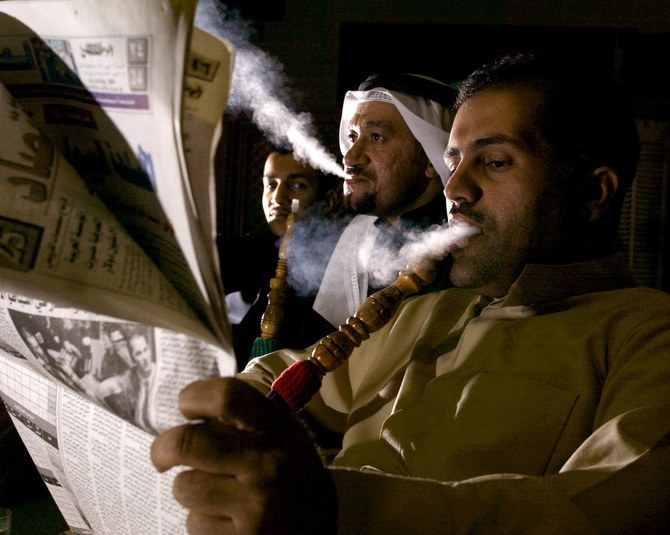
- WHO reveal a threefold increase globally in e-cigarette usage among children aged 13-15 compared to adults
LONDON: The Kuwaiti Ministry of Health will launch an anti-smoking awareness campaign on Thursday aimed at safeguarding children from the dangers of tobacco, the Kuwait News Agency reported on Tuesday.
Collaborating with various ministries and state agencies, the campaign will underscore the critical need to protect vulnerable populations from the hazards of smoking.
Dr. Abeer Al-Baho, director of the ministry’s Health Promotion Department, said the awareness drive will be inclusive by reaching out to men, women, and children alike.
The campaign will highlight the detrimental effects of smoking, shed light on the legal ramifications for those found to be smoking in unauthorized areas, and particularly safeguard individuals with health vulnerabilities, minors, and the environment.
Al-Baho stressed the campaign’s pivotal role in curbing smoking-related diseases and fatalities, emphasizing the direct and indirect harm caused to the lungs and heart and the links with many types of cancer.
Scheduled to run until May 31, coinciding with World No Tobacco Day, the campaign will span all six Kuwaiti governorates, featuring demonstrations that show the hazards of smoking.
Disturbing statistics from the World Health Organization reveal a threefold increase globally in e-cigarette usage among children aged 13-15 compared to adults, prompting urgent warnings about the risks posed by tobacco in its various forms, including traditional smoking and e-cigarettes.



